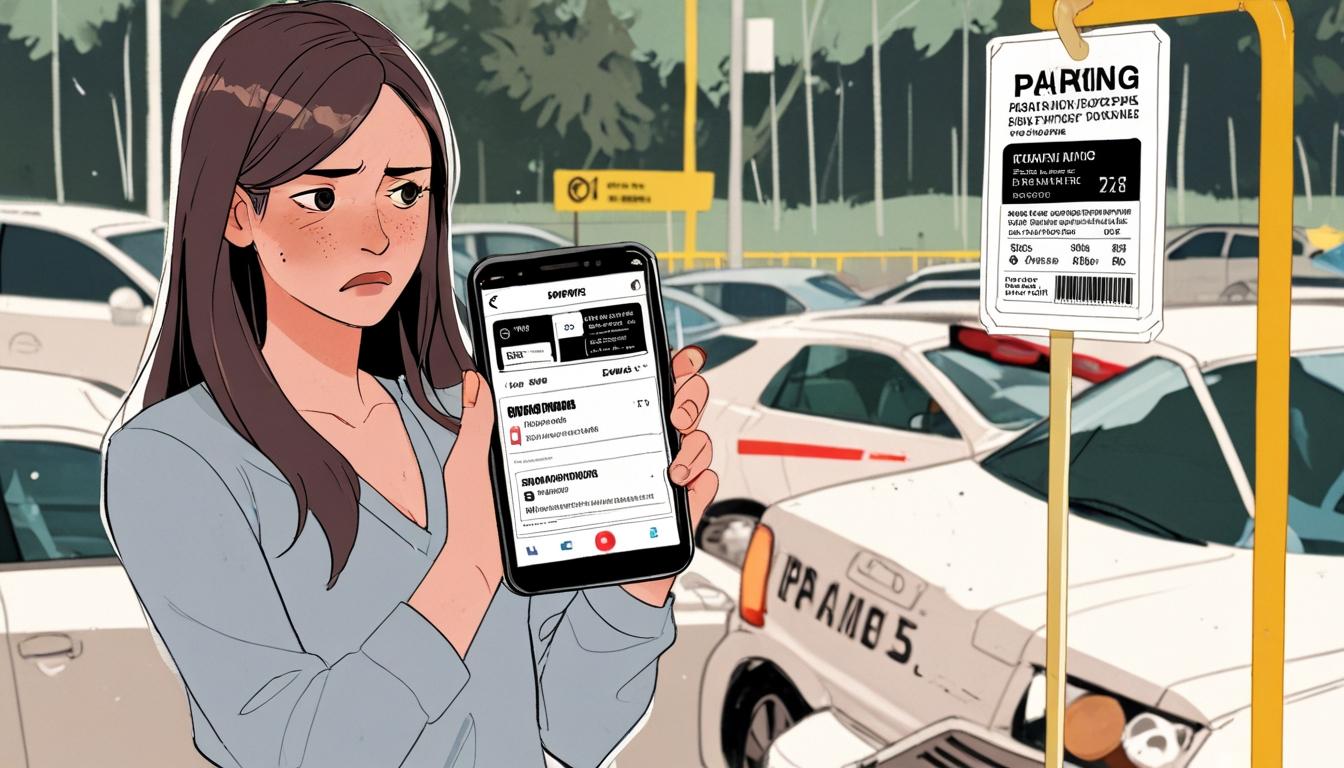Recently, a couple in South London experienced a frustrating interaction with modern parking technology, culminating in an unexpected parking fine due to user error. The incident unfolded in Dulwich Park, an area where Southwark Council has implemented a charge of £2.70 per hour for parking, a significant shift from the previously free provision.
The woman, who had recently downloaded the PayByPhone app on her Samsung Galaxy smartphone, was eager to manage her parking independently—a feat previously complicated by tech difficulties. Until this point, she had relied on her husband to make payments via his iPhone, a process involving telephone communication to relay the parking location number.
On this occasion, in an apparent moment of oversight, she incorrectly entered part of her vehicle's registration number into the app. Instead of the final three letters of her registration, she accidentally typed the last three characters of her postcode. Despite having successfully made the required payment of £2.70, she returned home with a £55 parking ticket, a charge that would double if not paid promptly.
Speaking to the Daily Mail, the woman expressed her frustration, asserting, “The flaming app told me I had five minutes left!” Meanwhile, her husband noted that while the app had processed the payment, it had ultimately failed to register her vehicle due to the registration input error. He recounted their back-and-forth, basking somewhat in the relief that for once, his partner bore the brunt of the situation.
The incident highlights broader concerns about the growing reliance on technology for everyday tasks, an evolution that some find disconcerting. The couple's experience mirrors a national trend whereby people increasingly depend on digital solutions, including apps for parking payments, grocery shopping, and banking. However, this reliance is not without its vulnerabilities.
Recent events across parts of Spain and Portugal illustrate the risks associated with digital dependencies. The regions suffered from severe power outages that prompted widespread disruption, leaving hospitals without power and transport systems incapacitated. Those who managed to retain physical cash found themselves at an advantage when seeking basic necessities.
Experts have repeatedly expressed concern over the potential vulnerabilities posed by over-reliance on electronic systems, particularly as cyberattacks become more common. Notably, major retail companies such as Marks & Spencer and Harrods have faced significant disruptions due to attacks on their IT systems, exacerbating public fears regarding the security of electronic transactions and personal data.
As businesses and institutions increasingly transition to cashless operations, some lawmakers advocate for preserving cash payments as a lifeline for individuals who may not be comfortable with technology or who simply prefer using traditional methods. The cross-party Treasury Committee has suggested that citizens maintain a small reserve of cash, just in case of future disruptions in digital systems.
While the couple’s experience in Dulwich Park serves as a case study in the potential pitfalls of modern conveniences, it also sheds light on a larger societal dialogue about the trade-offs between efficiency and personal security in the digital age. As technology continues to evolve, the balance between embracing innovation and maintaining traditional methods appears ever more critical.
Source: Noah Wire Services
